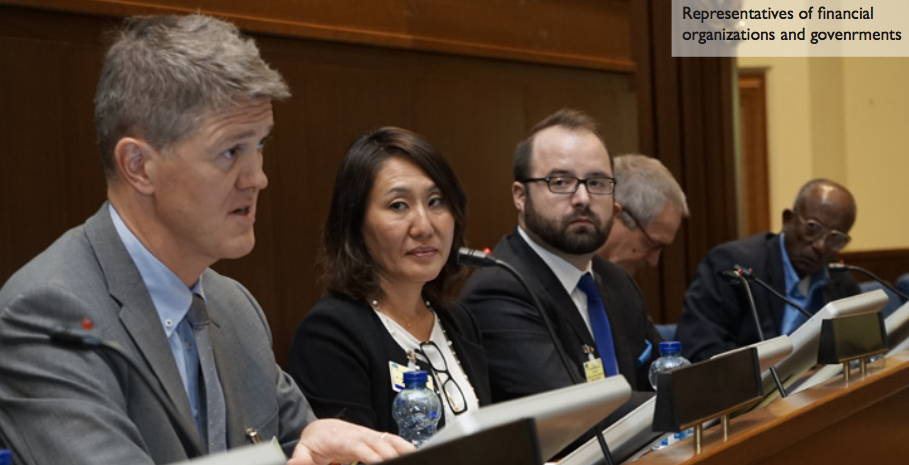Emerging issues in financing geothermal projects in the East Africa region

At the recently held ARGeo conference in Addis Ababa, representatives of several financial entities discussed the future of geothermal energy development in Africa and their current and future role in this context.
At the African Rift Geothermal Conference that ended on Friday last week, several interesting panels discussed the future of geothermal energy development in Africa.
In a special plenary session on financing, several financial organisations discussed modalities and challenges associated with financing geothermal projects in the East Africa region. In the panel to discuss this important topic were Ministry of Foreign Affairs – Icelandic International Development Agency (MFA-ICEIDA), East African Geothermal Facility (EAGER), the United States East African Geothermal Program (US-EAGP) under the Power Africa program, Japan International Cooperation Agency (JICA) and World Bank, as well as an energy financing consultant.
The MFA-ICEIDA noted that it is important for governments and developers to undertake quality surface studies before decisions for further steps are taken, and that training should be linked with tangible outputs. The East Africa Geothermal Energy Facility (EAGER) provided an overview of the activities being undertaken by the DFID-Funded program in ve countries – Ethiopia, Kenya, Rwanda, Tanzania and Uganda. EAGER observed that there is growing importance of geothermal data to aid decision making in a manner that will move the region from capacity building to decision-making.
The US-East Africa Geothermal Program (EAGP) noted that owing to Africa’s underserved demand, growing markets and high electricity tariffs, there is great need for well-structured capacity building programs to create a critical mass of local expertise for geothermal development.
World Bank observed that there still existed critical bottlenecks in accessing financing for the initial high risk phases of geothermal development. World Bank is engaged in direct financing as well as capacity building. World Bank shared that two of their emerging focus areas are geothermal data management and improving gender equality and social inclusion in geothermal projects.
JICA gave an update of its capacity building programs undertaken in 2016, and the projects earmarked for 2017. In addition to capacity building, JICA is also providing grants and soft loans for plant implementation projects, in addition to research and development in exploration and drilling technology in collaboration with universities in Indonesia and Japan.
The plenary session also explored modalities of financing green fields, with Eyob Easwaran an independent financial consultant, noting that financiers were looking at ast Power Purchase Agreement (PPA) negotiations which could bene t from using templates that have worked elsewhere to reduce time taken. He also noted that tax holidays and other incentives are needed to make geothermal investment attractive to the private sector.
Source: ARGeo Bulletin